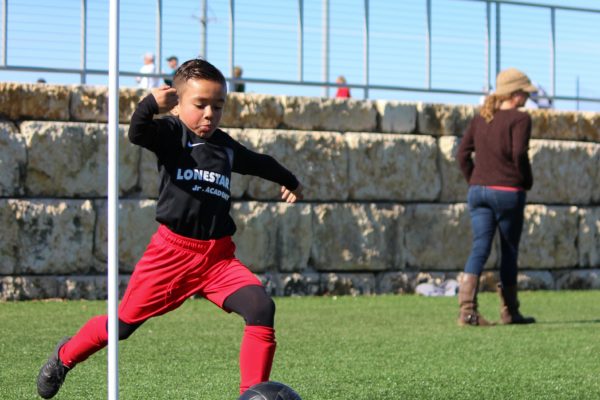
As originally published on Abundance Untapped:
Have you had your 5 year old told that he or she needs to be playing soccer year round starting NOW if they want to get a college scholarship someday? Perhaps, that seems funny and slightly exaggerated- however- this is becoming a real issue for today’s generation of kids. From a physical therapy perspective and from a parenting perspective, it may not be the best choice for kids to specialize early in one sport. Check out the stats below!
⚽ A report last year by the sports medicine department at Loyola University of Chicago found that “kids are twice as likely to get hurt if they play just one sport as those who play multiple sports”
⚽ There has been a five-fold increase since 2000 in the number of serious elbow and shoulder injuries among youth baseball and softball players, according to the American Orthopedic Society for Sports Medicine
⚽ 30 million Children and adolescents participate in youth sports in the United States
⚽ 3.5 million Children under age 14 receive medical treatment for sports injuries each year
⚽ 2 million injuries are sustained annually by U.S. high school athletes
⚽ 500,000 Annual doctor visits by U.S. high school athletes
⚽ 30,000 U.S. high school athletes hospitalized each year
Sources: www.stopsportsinjuries.org and U.S. Centers for Disease Control and Prevention
🏈 50 Percent of all sports injuries to middle school and high school students attributed to overuse
🏈 45 Percent of players ages 13 and 14 who will have arm pain during a single youth baseball season
🏈 40 Percent of all sports-related injuries (treated in hospitals) sustained by children ages 5 to 14
Sources: www.stopsportsinjuries.org and U.S. Centers for Disease Control and Prevention
It is clear that this trend has been noticed by researchers, health care providers, coaches, parents, and kids. If specializing in a sport too young has potential negative consequences, what are some of the reasons this happens all so often?
In the words of Kirk Anderson, Director of Coaching Education for the US Tennis Association:
“Even if parents and coaches know and understand age-appropriate principles for children, I think they would be reluctant to accept them because they would fear their child would fall behind the kid in a more structured program that focuses on training, competition and deliberate practice.”
As it may be tempting to follow this path, consider this advice from numerous distinguished college athlete recruiters/coaches:
Janine Tucker, Johns Hopkins – On recruiting multi-sport athletes: “We prefer to recruit players who are multi-sport athletes for a variety of reasons, first among them the diversity of skill sets that they develop. It also allows opportunities to be leaders, to stay in good shape, to stretch themselves as athletes, communicators, teammates and leaders. Another benefit, maybe in one sport the kid shines and is a leader. In another sport, they may not be the superstar. So they learn to be humble, to be a good teammate and to support the go-to players. That’s a tremendous benefit.”
Matt Kerwic, Cornell – On recruiting multi-sport athletes: “We certainly see more well-rounded athletes who have an ability to accept different coaching styles. They understand the dynamics of being on a team. That’s not to say that we don’t like seeing athletes who are also involved in individual sports, where they have to have the discipline to push themselves to be their best.”
Chris Bates, Princeton – On recruiting multi-sport athletes: “These guys have a high level of athleticism but probably haven’t peaked yet as lacrosse players. Once they get to college, they will specialize and will develop and blossom. They usually have a steep growth curve, whereas some of the kids who have been single-sport athletes tend to burn out quicker. Oftentimes, they don’t have as much left in the tank.”
It is important to keep kids healthy mentally, physically, spiritually, and emotionally- this is what will help them thrive for the long-term. Discussing these topics is important for parents, kids, and coaches to make a good decision about improving at a sport, enjoying the sport, and keeping healthy boundaries.
A physical therapist is a great resource for your family if you have further questions! They can help you to understand the risks/benefits of certain sports, assess for injury risk, and provide a program to help your child develop to their full potential. Message Dr. Stecklein with your questions below!
Author: Dr. Jillian Stecklein, Director of Physical Therapy Services with MyCatholicDoctor
Editor: Samantha Wright, Marketing Director with MyCatholicDoctor
Leave a reply
